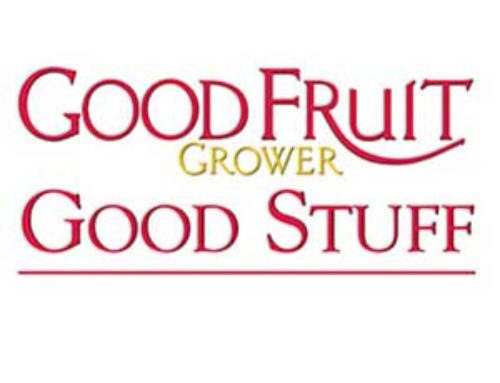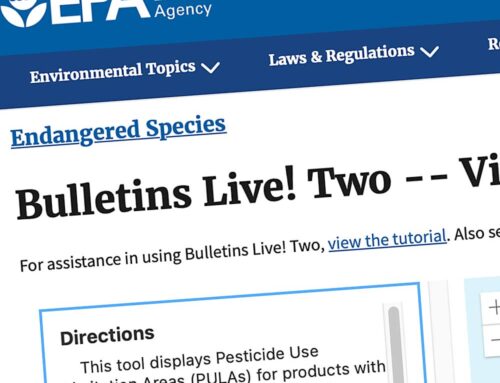A group of California soft fruit growers is teaming up to implement a sustainable agriculture certification program and promote their environmentally friendly practices in the marketplace. Though many tree fruit shippers comply with various food-safety programs required by retailers, nonorganic but sustainable tree fruit has not been widely promoted in grocery stores.
Seven family farms in California’s San Joaquin Valley are marketing some of their peaches, nectarines, plums, Pluots, apricots, and Apriums this summer under FreshSense’s Zeal label, a new label created to show that the fruit was grown under a certification program of Protected Harvest.
National organic standards dictate what type of fertilizers and chemicals can and cannot be used, said Blair Richardson, CEO of FreshSense, the Parlier, California, marketing agency that represents Ripe ’n Ready fruit. “But Zeal tree fruit must meet a strict set of standards that go way beyond what kind of pesticides are used.”
The nonprofit Protected Harvest organization has secured nearly $3.5 million to date in research funding and grants to develop comprehensive sustainable programs that address environmental issues related to soil, water, air, wildlife and habitat preservation, management of energy inputs, and reduction of chemical use.
The organization has developed certification programs for a variety of commodity groups, including Lodi Rules, (Lodi-Woodbridge wine grapes), Wisconsin potatoes, California strawberries and citrus, and mushrooms. When developing such programs, the producer group works with Protected Harvest and technical and scientific representatives of other nonprofit environmental groups, like the World Wildlife Fund and the Environmental Defense Fund, to create standards that can be objectively measured and verified.
Protected Harvest performs the annual third-party audits that are part of certification. In 2004, Protected Harvest received a grant of $1 million from the U.S. Department of Agriculture’s Natural Resources Conservation Service to help implement a tree fruit orchard renewal project aimed at replacing 35,000 acres of older peach, plum, and nectarine orchards with more environmentally sound orchard systems.
The Zeal certification program reviews irrigation management practices, type of irrigation delivery system, type of irrigation pump used (electrical, solar, low emission diesel, etc.), and requires that nitrate levels from well water be tested, with the levels used in adjusting the amount of nitrogen applied. Other practices are reviewed, including storage of fertilizers and chemicals on the farm, participation in continuing education, and orchard replanting.
“It’s not just about the water-savings component of water management,” Richardson said. “It’s also about proper water usage. If you have a high water table, it’s looking at which is the better choice for delivery—drip or flood.” Additionally, Protected Harvest requires a chain-of-custody audit that follows the crop from field to retail to ensure that customers are getting certified products.
Economically viable
According to Richardson, grower-members of FreshSense have invested more than $2 million to modify their agricultural practices to comply with the Protected Harvest certification program. They expect to be rewarded for their efforts in the marketplace by receiving 10 to 15 percent higher prices for their Zeal-branded fruit.
Many of the practices they have adopted actually save money, he points out. All packaging and point-of-sale material are made from sustainable forestry products and use very little ink (soy ink) on the boxes, which has reduced their packaging costs, he said. Some of the agricultural practices, like testing nitrate levels of well water, have resulted in less nitrogen applied, reducing costs. He stresses that the program is about doing what’s best for the environment, but it still has to be economically viable for the growers.
Adding value
It’s taken four years to launch the sustainable program and have certified fruit ready for the market, Richardson said. “A number of orchards were certified last year, but we just weren’t ready,” he said, adding that some of the grower-member orchards were eliminated from the program.
“It’s pretty strict and not an easy thing to get into.” Last fall, FreshSense received a value-added producer grant from the USDA for about $300,000 to help start up the Zeal brand. The grant helped support development of the marketing program and promotion materials, and will provide funds for product sampling this season.
Grant monies will also be used for consumer research. Recent studies have revealed that 65 to 75 percent of consumers want to feel good about the products they purchase, he said, adding that more than half of consumers claim some understanding of the term “sustainable.”
Initially, the group plans to sell about 400,000 boxes of Zeal-branded tree fruit. By mid-May, retailer commitments already had been received for about half of the projected sales volume. Together, the four shipper-members of FreshSense—SunWest Fruit Company, George Brothers, Ballantine Produce, and Fowler Packing—represent almost a third of California’s stone fruit production for peaches, nectarines, plums, Pluots, apricots, and Apriums, according to industry sources.
• The complete list of Zeal-approved farming practices for sustainable stone fruit production can be found on-line at www.protectedharvest.org.



Leave A Comment